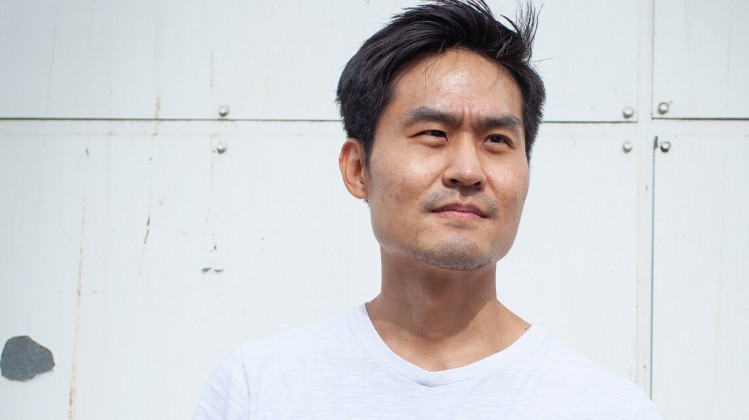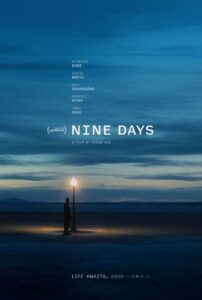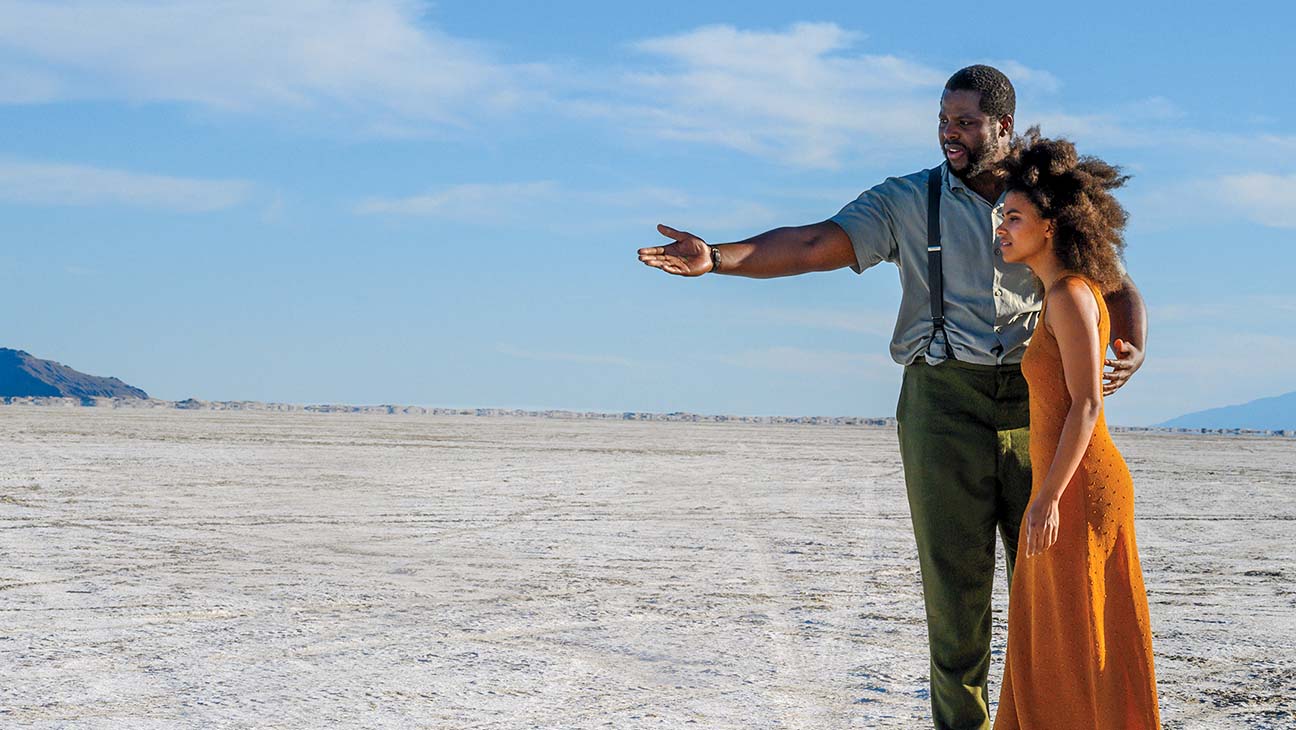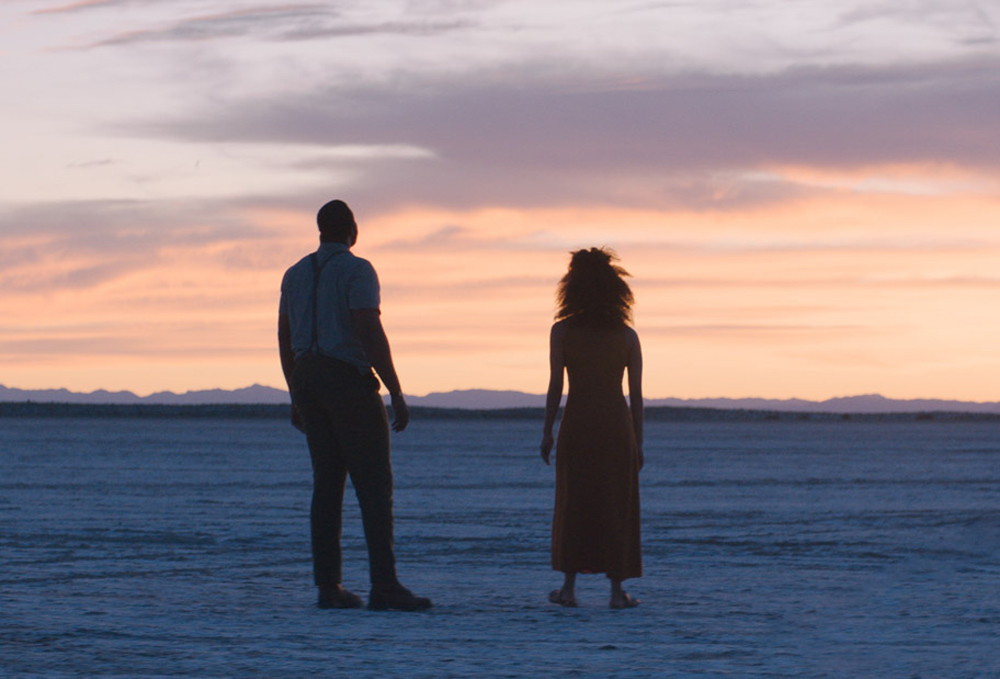 By Jacob Sahms
By Jacob Sahms
Imagine you had to be interviewed as a soul to be determined worthy for a body on Earth. Imagine what about your personality and character would argue for you, or what would get in the way of your selection. Imagine the interviewer was someone who had once lived and had his own set of issues to deal with while evaluating your soul.
That’s the premise of Japanese-Brazilian director Edson Oda’s first feature-length film, the artistic exploration of big metaphysical questions called Nine Days.
 Oda’s first memory of film is watching Rain Man in the theater, his father reading subtitles to him. Back to the Future Part II challenged him with its storytelling as he watched it over and over again, at least twenty times. And later, The Matrix impressed him with its spiritual exploration in theatrical, cinematic form.
Oda’s first memory of film is watching Rain Man in the theater, his father reading subtitles to him. Back to the Future Part II challenged him with its storytelling as he watched it over and over again, at least twenty times. And later, The Matrix impressed him with its spiritual exploration in theatrical, cinematic form.
“There’s something about the empathy of going through the lives of other people, seeing their story from their perspective while they’re people who are not like you,”Oda says about film. “You can see yourself, see the soul in someone else’s body, and recognize that you’re part of something bigger. When I watch a movie, I see the deeper meaning, and recognize that life is bigger than me.”
While film has made a primary impact on the writer/director, graphic novels speak to him, too, in terms of his understanding of exploring choices to be human and recognizing that life is a journey, not solely an outcome. Frank Miller’s Daredevil captured him more intimately and deeply than Ben Affleck’s film or even the Netflix television series. “He gets lost and has to go back and find his voice,” he proposed. “I love exploring the mythology before he becomes the guy. He’s loved by his mom who gives him up sadly for the greater good, then experiences that abandonment again with his mentor Stick.”
 While a film shot primarily in a little house, no more than a shack, as a series of interactions or interviews between the arbiter Will (Winston Duke) and a series of would-be souls, like Zazie Beetz, Tony Hale, and Bill Skarsgård, seems like a leap from a love for mythology and superheroes, it becomes more reasonable with every moment spent with Oda. His empathy quotient is huge – and he wants to explore the development of how a person’s soul is put together and how it plays out in relationship with others. What is each person’s back story, or their piece of the mythology in the greater whole?
While a film shot primarily in a little house, no more than a shack, as a series of interactions or interviews between the arbiter Will (Winston Duke) and a series of would-be souls, like Zazie Beetz, Tony Hale, and Bill Skarsgård, seems like a leap from a love for mythology and superheroes, it becomes more reasonable with every moment spent with Oda. His empathy quotient is huge – and he wants to explore the development of how a person’s soul is put together and how it plays out in relationship with others. What is each person’s back story, or their piece of the mythology in the greater whole?
“I was going through a struggle, with difficult times,” he explains. “When you go through those times, it’s easy to lose perspective in the midst of the turbulence. It creates blindspots in our vision.”
“I wasn’t able to see the present, because I was too focused on the goal. I’d say, ‘I’ll be happy when this happens or that happens,’ but what if this right now is the goal? It became a trigger to think of a reality where this is everything that we have and souls want to be where we are. It’s helped me be more in the present, to elevate my own joy in the moment.”
 Oda believes it’s his role as a human being to share his perspective through storytelling in films like this. He knows that someone can see the film, and that it could help them deal with the world differently, and that motivates him to make films. “After a film festival, I received an email, that was life-changing for me,” Oda shares. “The person was depressed and suicidal, and watching the movie, well, they said it saved their life.”
Oda believes it’s his role as a human being to share his perspective through storytelling in films like this. He knows that someone can see the film, and that it could help them deal with the world differently, and that motivates him to make films. “After a film festival, I received an email, that was life-changing for me,” Oda shares. “The person was depressed and suicidal, and watching the movie, well, they said it saved their life.”
“It’s hard to understand the impact that we can have on other people’s lives. Not just film but anything you do. You might feel powerless, and then it’s a huge surprise that something you did made a difference.”
This sense of gratitude makes Oda aware of his work with the big stars like Duke and Hale, that it’s incredible for a first film. He says that the screenplay hooked the stars, and that it demanded they be vulnerable to make the film work. Together, they became a family, believing the same things and walking together as they told the story.
“We try to fix things so often,” Oda admits, “and it’s all about the outcome, and don’t enjoy the moment.”
That’s what Nine Days has the power to remind the audience of – that it’s not just about the destination, but so importantly, it’s about the journey and who we lift up along the way.




